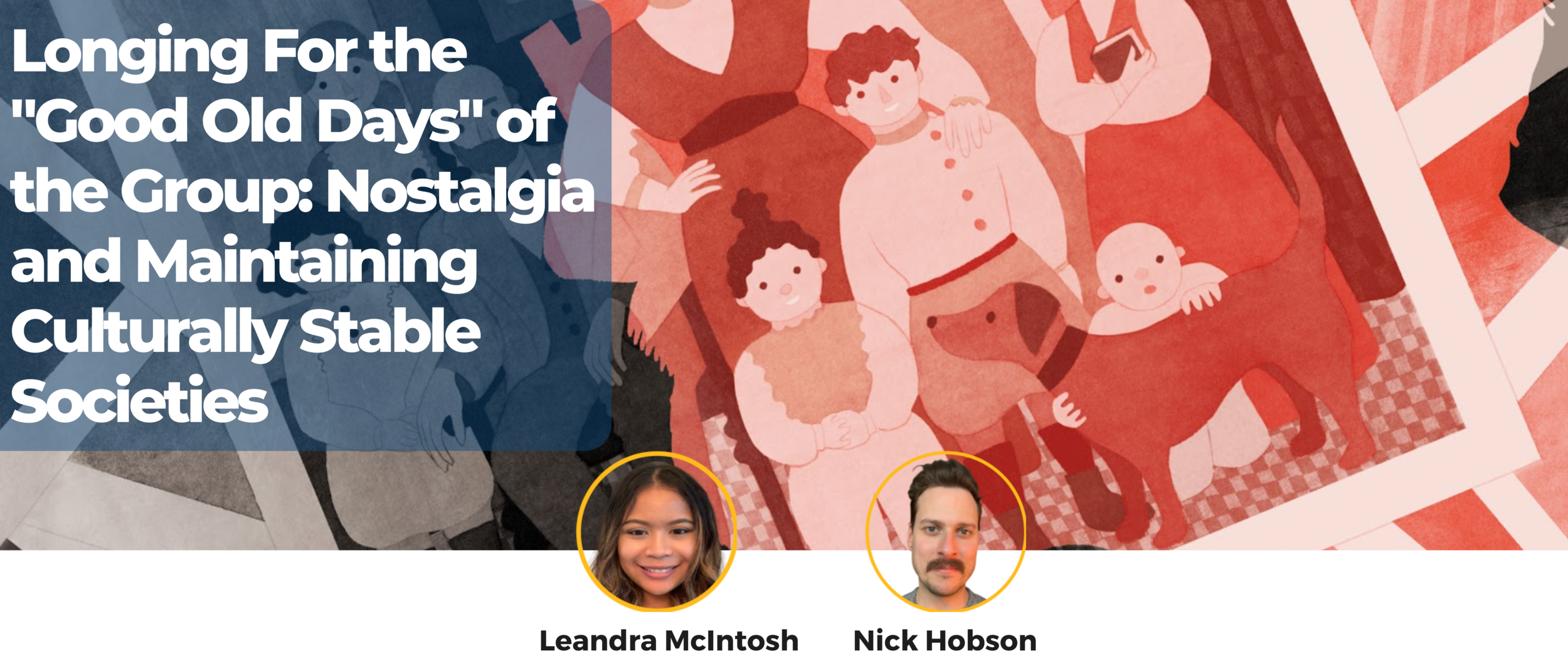Nostalgia is a file that removes the rough edges from the good old days
– Doug Larson
A study published in the Journal of Experimental Social Psychology proposed that people who feel nostalgic for a less diverse society tend to be more anti-immigration while those who long for more cultural and religious diversity tend to be more pro-immigration.
This research was carried out by Michael J.A. Wohl and Anna Stefaniak from Carleton University and Anouk Smeekes from Utrecht University.
Despite the changes that occur over time, people often find comfort in believing that their social group remains the same. If the stability of their group is threatened, people tend to experience psychological distress.
To cope with these feelings, people often experience collective nostalgia. This form of nostalgia refers to a sentimental longing for a group’s former social identity and cultural values. Collective nostalgia can be felt even if the individual hasn’t personally experienced the time period they’re longing for.
The researchers in this study hypothesized that feeling nostalgic for a more (or less) diverse society can predict whether someone will be pro- (or anti)-immigration.
The researchers began their first experiment by recruiting a sample of Christian-Americans between the ages of 21 to 74. They hypothesized that feeling collective nostalgia for a more open American society should be associated with less anti-immigration sentiments and prejudice towards Muslims.
Each participant was given a series of questionnaires containing a seven-point scale ranging from 1 (strongly disagree) to 7 (strongly agree). The first questionnaire assessed collective nostalgia for an open society using statements such as, “I feel nostalgia for a time when America was more open to cultural and religious diversity”.
The next questionnaire examined collective nostalgia for a homogenous society using statements such as, “I feel nostalgic for a time when America was more homogenous (i.e. the same) in terms of cultural and religious beliefs.”
The third questionnaire examined anti-immigration sentiments using statements such as, “I am opposed to immigration reform that enables currently undocumented immigrants a path to citizenship”.
The last questionnaire assessed blatant prejudice against Muslims in America using statements such as, “I support forcing Muslims to take specific courses on Western values.”
As expected, participants who reported feeling collective nostalgia for a more homogenous American society also reported stronger anti-immigration sentiments and blatant prejudice towards Muslims.
Conversely, those who reported feeling collective nostalgia for a time when American society was more open to cultural and religious diversity also reported stronger pro-immigrant sentiments.
In the following experiment, the researchers examined whether participants could be manipulated into feeling collective nostalgia for a particular aspect of America’s past.
They divided participants (i.e. Christian-Americans) into one of three conditions. In the ‘open society’ condition, participants read that Donald Trump’s policies had led some Americans to “sentimentally long for an America that was more open to cultural and religious diversity.”
In the ‘homogenous society’ condition, participants read that Donald Trump’s policies had led some Americans to “sentimentally long for an America that had less cultural and religious diversity.”
Participants in each condition were also asked to write about an event in American history that made them feel nostalgic for a more open or homogenous society, depending on which condition they were in.
Lastly, the remaining participants were placed in the control condition and were simply asked to write about an ordinary event in American history. Following this, participants completed measures assessing anti-immigration sentiments and prejudice against Muslim-Americans.
The results revealed that participants in the ‘open society’ condition reported more pro-immigration/less anti-immigration sentiments than the control condition.
However, those in the ‘homogenous society’ condition were equally likely as the control condition to report anti-immigration sentiments.
In other words, manipulating people to long for a more inclusive society can make them more pro-immigration, but the opposite manipulation isn’t as obvious. Manipulating people to long for a more homogenous, less diverse society doesn’t necessarily lead to more anti-immigration sentiments.
To recap, the researchers found that people who feel collective nostalgia for a time when America was more culturally and religiously the same are more likely to express anti-immigration sentiments.
Those who long for a time when America was more open are more likely to express pro-immigration sentiments. In addition to this, people’s attitudes can be acutely altered into feeling nostalgia for a more open society, which also leads to more pro-immigration sentiments.
However, manipulating people to long for a more homogenous, less diverse society doesn’t necessarily lead to more anti-immigration sentiments.


